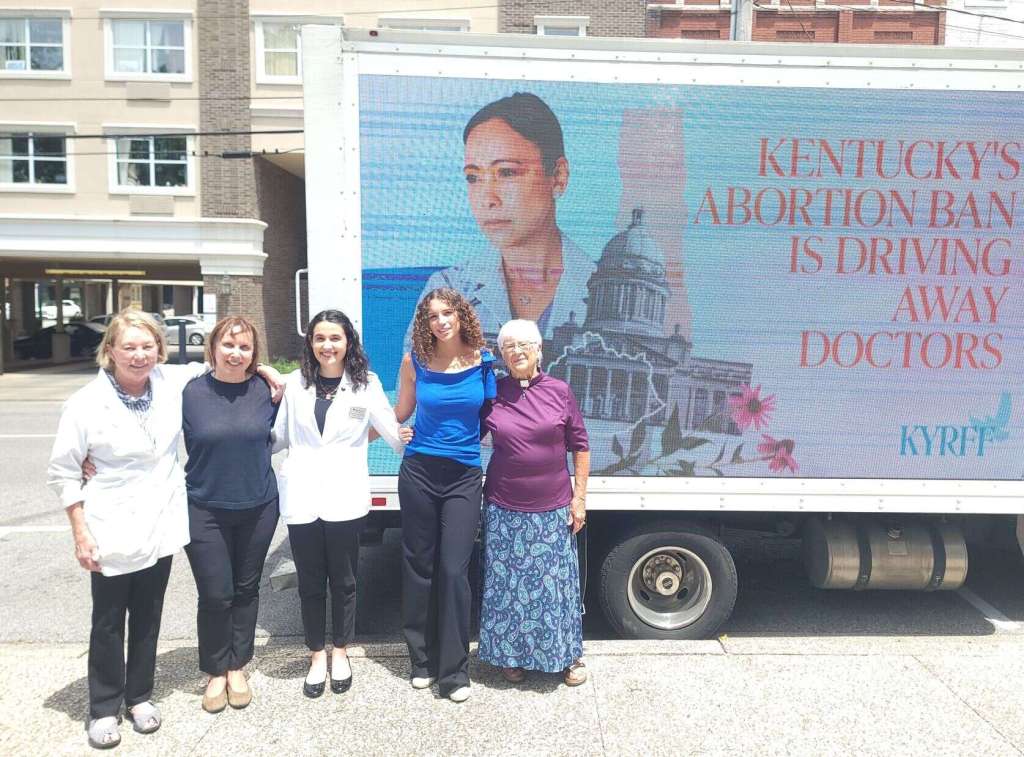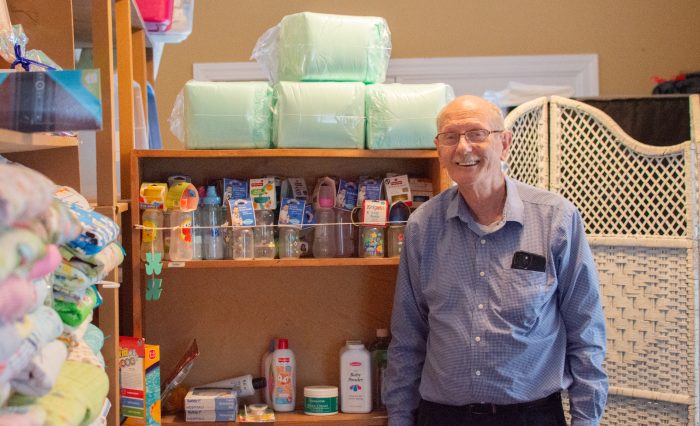Abortion access campaign reaches Bowling Green
Published 6:00 am Saturday, August 3, 2024

- Dr. Janet Wygal (from left) Ona Marshall, Lilly Deljoo, Kennedy, and the Rev. Diane Snowa stand in front of a mobile billboard truck protesting abortion bans in front of the Warren County Courthouse on Thursday.
In her residency, Dr. Janet Wygal, a longtime OBGYN, took care of numerous children: Many, she said, were pregnant as a result of incest and rape. Some were raped multiple times. Some became pregnant before experiencing their first menstrual period.
On Thursday, in front of the Warren County Courthouse, Wygal stressed that Kentucky’s current abortion ban doesn’t include exceptions for rape or incest.
Trending
“At this moment, in a state that I love, have raised my family and dedicated my medical career to serving women and pregnant persons, I am so deeply distressed that children and women must flee the state for routine, lifesaving and compassionate healthcare,” she said.
On Thursday, Wygal and several other speakers gathered at a press event as part of the Kentucky Reproductive Freedom Fund’s statewide campaign, which is intended to bring attention to the implications of the state’s abortion ban.
The event marked two years since the Kentucky Court of Appeals reinstated two laws restricting abortions statewide. The campaign, launched in June, began two years after the overturning of Roe V. Wade.
Lilly Deljoo, a second-year medical student at the University of Louisville School of Medicine, said that she was in California when the ban took place, but when she returned to Kentucky a year later, a harsh reality hit her.
“I no longer live with a right to choose,” she said.
Deljoo said that in California, she would see reassurance on the faces of her peers, who knew they had the right to an abortion to protect themselves if they had an unplanned or unviable pregnancy.
Trending
“Living in Kentucky, I see that reassurance replaced with fear,” she said. “As a future provider, I fear lacking the capabilities and proper training to save my patient’s life.”
Students at the University of Louisville conducted a survey that gathered 272 responses from students primarily at the schools of medicine at UofL and University of Kentucky College of Medicine — and found that about 73% of respondents would consider getting medical training outside the state due to restrictive abortion policies.”
“Interfering between the safe and invaluable bond between a provider and a patient undermines the degree I am working hard to achieve,” Deljoo said.
Kentucky has the fourth-highest birth rate among teenagers in the U.S., according to 2024 data from the Centers for Disease Control and Prevention.
The Rev. Diane Snowa, a retired pastor who was ordained in the United Church of Christ in Louisville, said she held deep concern that religion is being “weaponized in a political battle.”
“This use of religion is wrong,” she said.
Laws that ban abortion assault on religion in two ways, she said.
First, such laws enforce a belief about when life begins on people across religions as well as the non-religious, she said. Secondly, laws that restrict abortion care are inconsistent with Jewish law, which permits abortion — especially to save the life of a mother.






